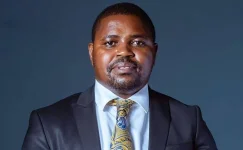The Supreme Court freed Harare lawyer Admire Rubaya from all charges after he appealed a lower court decision. The court had tried to punish him for supposedly blocking justice during a gold theft case that involved someone else. Justices George Chiweshe, Chinembiri Bhunu, and Hlekani Mwayera agreed with his appeal. They said the lower court made a mistake in its ruling.
The judges also cleared Magistrate Timeon Makunde of any wrongdoing. Previously, Rubaya had helped client Jefat Chaganda beat gold smuggling charges in a case Makunde handled. After Chaganda went free, Makunde told officials to give back the gold to him. The government then accused everyone involved - Rubaya, Makunde, a prosecutor, and a minerals police officer - of theft or blocking justice.
Lawyers for Rubaya—Thabani Mpofu, Oliver Marwa, and Tymon Tabana—called these charges unfair and an attack on lawyers just doing their jobs. They argued that they broke the sacred trust between lawyers and clients. When they first challenged these charges, the High Court rejected them. They then took their fight to the Supreme Court, where they found success.
The legal team pointed out that the High Court judge admitted the charge against Rubaya had problems but still let the case go forward. This approach made no sense to them. Mpofu argued his client should not face blame for what the magistrate decided. He stressed that since courts never overturned Chaganda's freedom, that ruling remained valid under the law.
Mpofu claimed the government wanted to punish his client and others at any cost, even if they broke legal rules. He said prosecutors tried to work backward to find crimes that never happened. The lawyers explained that you cannot prove a crime by looking at normal actions that happened after the event. They argued the judge failed to see that no actual crime appeared in the charges.
The legal team also said prosecutors tried to use criminal charges as a backdoor way to review a case that had already ended. They argued the lower court missed this important point. The defense believed their client should not face criminal punishment just for defending someone who still maintained his innocence throughout the entire legal process.
The judges also cleared Magistrate Timeon Makunde of any wrongdoing. Previously, Rubaya had helped client Jefat Chaganda beat gold smuggling charges in a case Makunde handled. After Chaganda went free, Makunde told officials to give back the gold to him. The government then accused everyone involved - Rubaya, Makunde, a prosecutor, and a minerals police officer - of theft or blocking justice.
Lawyers for Rubaya—Thabani Mpofu, Oliver Marwa, and Tymon Tabana—called these charges unfair and an attack on lawyers just doing their jobs. They argued that they broke the sacred trust between lawyers and clients. When they first challenged these charges, the High Court rejected them. They then took their fight to the Supreme Court, where they found success.
The legal team pointed out that the High Court judge admitted the charge against Rubaya had problems but still let the case go forward. This approach made no sense to them. Mpofu argued his client should not face blame for what the magistrate decided. He stressed that since courts never overturned Chaganda's freedom, that ruling remained valid under the law.
Mpofu claimed the government wanted to punish his client and others at any cost, even if they broke legal rules. He said prosecutors tried to work backward to find crimes that never happened. The lawyers explained that you cannot prove a crime by looking at normal actions that happened after the event. They argued the judge failed to see that no actual crime appeared in the charges.
The legal team also said prosecutors tried to use criminal charges as a backdoor way to review a case that had already ended. They argued the lower court missed this important point. The defense believed their client should not face criminal punishment just for defending someone who still maintained his innocence throughout the entire legal process.












